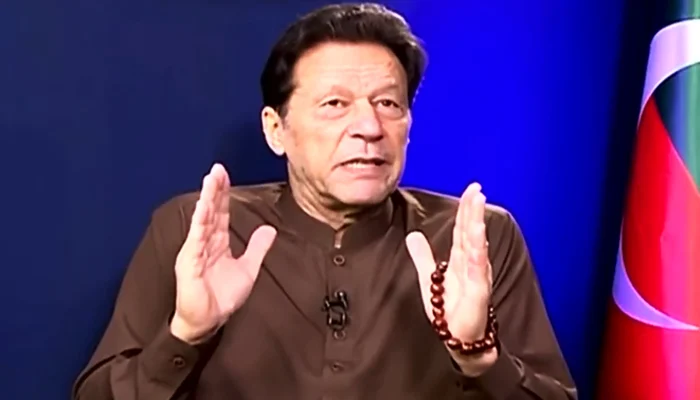Imran Khan, the chairman of Pakistan Tehreek-e-Insaf (PTI), acknowledged that he dissolved the provincial assemblies of Punjab and Khyber Pakhtunkhwa (KP) based on advice from former army chief General (retd) Qamar Javed Bajwa. During an interview with a private news channel, Khan, who was ousted as prime minister last year following a no-confidence vote, accused Bajwa of having no ideology and deceiving him.
Khan claimed that the Intelligence Bureau (IB) chief informed him that Bajwa aimed to bring Shehbaz Sharif to power. He also mentioned a Middle Eastern leader who informed him a year ago that Bajwa no longer supported him. According to Khan, Bajwa and the intelligence agency were aware of the current rulers’ theft from the national treasury and their plans to transfer funds abroad but were still willing to grant them amnesty due to Bajwa’s plans for an extension.
Khan suggested that elections could be held in July if Prime Minister Shehbaz Sharif dissolves the National Assembly. He also emphasized that the caretaker governments in Punjab and KP are illegal due to the expiration of their terms, and demanded a neutral interim setup.
The PTI chairman warned against pressuring the Supreme Court, which has set May 14 as the date for Punjab polls, and criticized the Shehbaz-led administration for being fearful of elections. He accused the Election Commission of Pakistan (ECP) of collaborating with the ruling Pakistan Democratic Movement (PDM) alliance and criticized the Pakistan Muslim League-Nawaz (PML-N) senior vice-president.
On the matter of negotiations with the ruling alliance in Islamabad, Khan clarified that he had given the mandate to PTI Vice Chairman Shah Mahmood Qureshi, not former National Assembly Speaker Asad Qaisar. The Chief Justice of Pakistan, Bandial, suggested that the court could change the election date if political parties reach a consensus.
Various political leaders have expressed support for talks and have been working to bridge the gap between PTI and coalition parties in the government. Khan, however, contended that the government would use negotiations to further postpone the polls and claimed that his long march occurred because the government was not serious about talks with his party.


